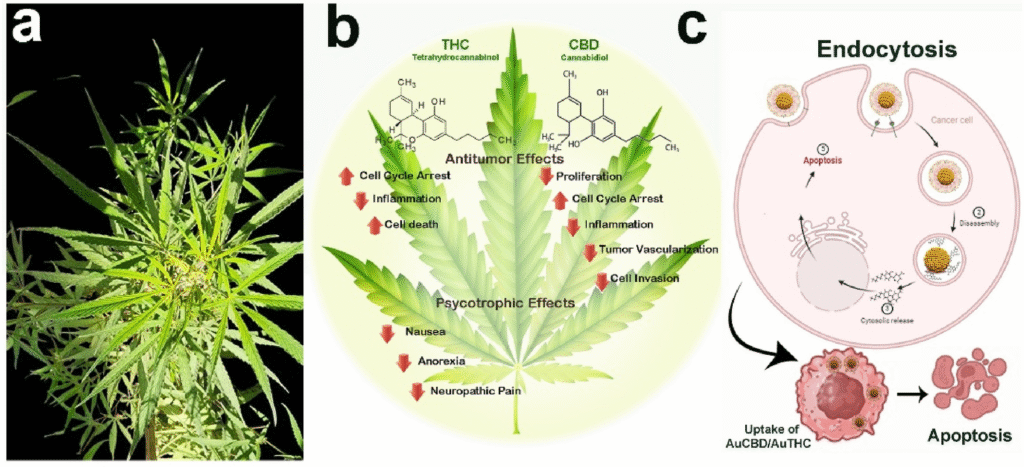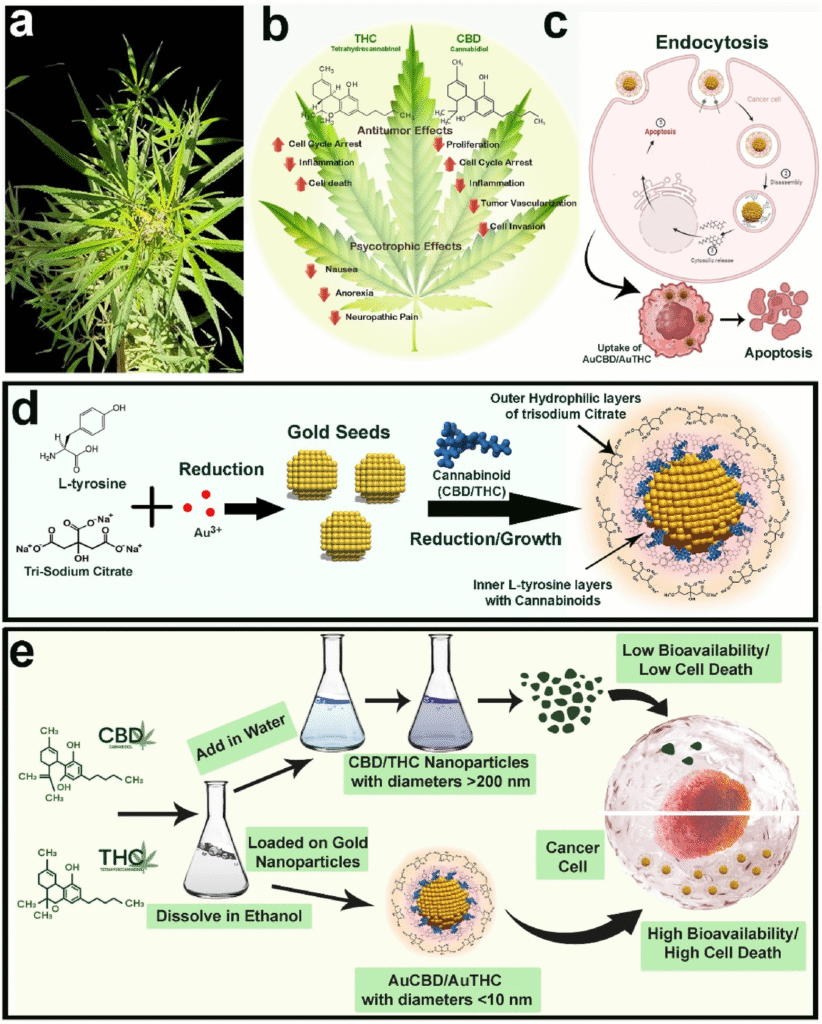Researchers from Toronto Metropolitan University and St. Michael’s Hospital have developed a method of delivering cannabinoids to cancer cells using gold nanoparticles, with results showing significantly enhanced anti-cancer effects in lab models.

The study, published today by the journal Materials Today Sustainability, explored a new synthesis process for loading the cannabinoids THC and CBD onto gold nanoparticles (AuNPs) using a one-pot method. The technique employed trisodium citrate and l-tyrosine as reducing and stabilizing agents, with l-tyrosine playing a key role in both stabilizing the nanoparticles and helping load the cannabinoids.
Once synthesized, the cannabinoid-loaded gold nanoparticles were evaluated using advanced imaging and spectroscopy tools. Tests in human breast cancer cell lines revealed a significant boost in effectiveness: the concentration required to kill half the cancer cells (IC50) dropped by over 70% for THC and over 37% for CBD when delivered via nanoparticles compared to the standard aqueous suspension of each compound.
Flow cytometry confirmed that the increased cell death was due to apoptosis, a form of programmed cell death. The enhanced effect is attributed to greater cellular uptake and bioavailability of the cannabinoids when transported by the nanoparticles.

“Compared to the aqueous suspension of pure cannabinoids, this approach induced and enhanced cancer cell death more efficiently”, states the study. “This enhanced efficacy was associated with a decline in cell viability, which is attributed to apoptosis, as indicated by flow cytometry results. Our findings offer a significant step towards the green design and utilization of AuNPs to deliver cannabinoids into cells efficiently.”
For the full text of the study, click here.







